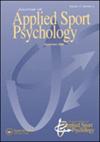Navigating psychological membership in sport organizations: Exploring sport employees’ identities
IF 3.2
2区 心理学
Q2 HOSPITALITY, LEISURE, SPORT & TOURISM
引用次数: 2
Abstract
Abstract This study was created to examine sport employees’ social identities. While a clearer understanding of sport fans’ social identities exists, there is a gap in the literature pertaining to the identification processes of sport employees–including the influence of fandom. As such, this study is positioned to examine how and why sport employees identify with their sport organizations. The study was grounded in a hermeneutic phenomenology approach to gather deep and rich data concerning sport employees’ lived experiences of working in the sport industry. Specifically, semi-structured interviews were conducted with 18 full-time sport employees from a variety of American sport sectors. A thematic analysis of the transcribed interviews was used to develop a total of four themes that explored the meanings of the self-concepts of participants, the symmetry between their self-views and sport organizations, the experience of a sense of belonging with a sport organization, and the interplay between sport employees and fans. The results of the study support previous work suggesting that sport employees have a distinct social identification process with their sport organizations. In terms of potential outcomes, the application of social identification in the sport workplace could lead to enhanced employee and organizational performance, as participants were willing to engage in labor, primarily in the form of organizational citizenship behaviors, that supported the functionality their sport organizations. Lay summary: This study explored sport employees’ sense of fandom and membership with sport organizations. During interviews, participants viewed sport and competition as important aspects of themselves and working in sport organizations reinforced such ideals. Further, there is potential for improved employee and organizational performance when sport employees identify with their organization. Implications for practice Employees’ social identities can be supported by emphasizing competition Identified sport employees value their contributions and will increase work efforts Sport organizations can leverage identified employees to enhance performance by promoting an atmosphere of helping behaviors and valuing organizational outcomes引导体育组织的心理成员关系:探索体育员工的身份
摘要本研究旨在考察体育从业人员的社会身份。虽然对体育迷的社会身份有了更清晰的理解,但在与体育员工的身份识别过程相关的文献中存在空白,包括球迷的影响。因此,本研究旨在研究体育员工如何以及为什么认同他们的体育组织。本研究以解释学现象学方法为基础,收集了关于体育员工在体育行业工作的生活经历的深入而丰富的数据。具体而言,对来自美国各体育部门的18名全职体育员工进行了半结构化访谈。对转录的采访进行了主题分析,共提出了四个主题,探讨了参与者自我概念的含义、他们的自我观点与体育组织之间的对称性、与体育组织的归属感体验以及体育员工和球迷之间的相互作用。这项研究的结果支持了之前的研究,即体育员工与他们的体育组织有着独特的社会认同过程。就潜在结果而言,在体育工作场所应用社会认同可以提高员工和组织绩效,因为参与者愿意从事劳动,主要是以组织公民行为的形式,这支持了他们的体育组织的功能。综述:本研究探讨了体育从业人员对体育组织的粉丝意识和会员意识。在采访中,参与者将体育和比赛视为自己的重要方面,在体育组织工作强化了这一理想。此外,当体育员工认同他们的组织时,员工和组织绩效有可能得到改善。对实践的影响员工的社会身份可以通过强调竞争来支持已识别的体育员工重视他们的贡献,并将增加工作努力体育组织可以利用已识别的员工,通过促进帮助行为和重视组织成果的氛围来提高绩效
本文章由计算机程序翻译,如有差异,请以英文原文为准。
求助全文
约1分钟内获得全文
求助全文
来源期刊
CiteScore
6.90
自引率
9.40%
发文量
39
审稿时长
>12 weeks
期刊介绍:
The Journal of Applied Sport Psychology (JASP) is a refereed journal designed to significantly advance thought, theory, and research on applied aspects of sport and exercise psychology. Submissions such as experimental studies, qualitative research, correlational studies, case studies, position papers, critical reviews, theoretical developments specific to applied research conducted in sport and/or exercise settings, or having significant applied implications to sport and exercise, are appropriate content for the JASP. Please see the recent Editorial for further details on the aims and scope of the journal. JASP is a non-proprietary journal that is an official publication of the Association for Applied Sport Psychology (AASP). The purpose of AASP is to promote the development of psychological theory, research, and intervention strategies in sport and exercise psychology. The Journal is a direct benefit of membership in AASP and is received by its student and professional members. The publisher of the JASP is Taylor and Francis, Inc. of Philadelphia, PA.

 求助内容:
求助内容: 应助结果提醒方式:
应助结果提醒方式:


